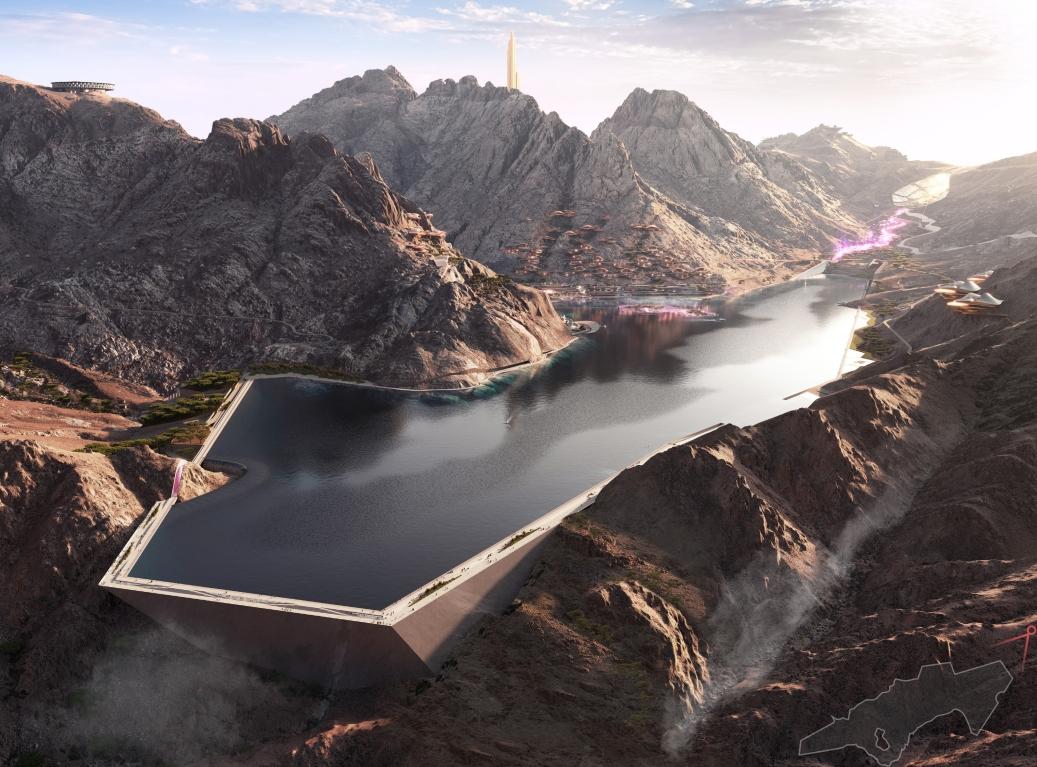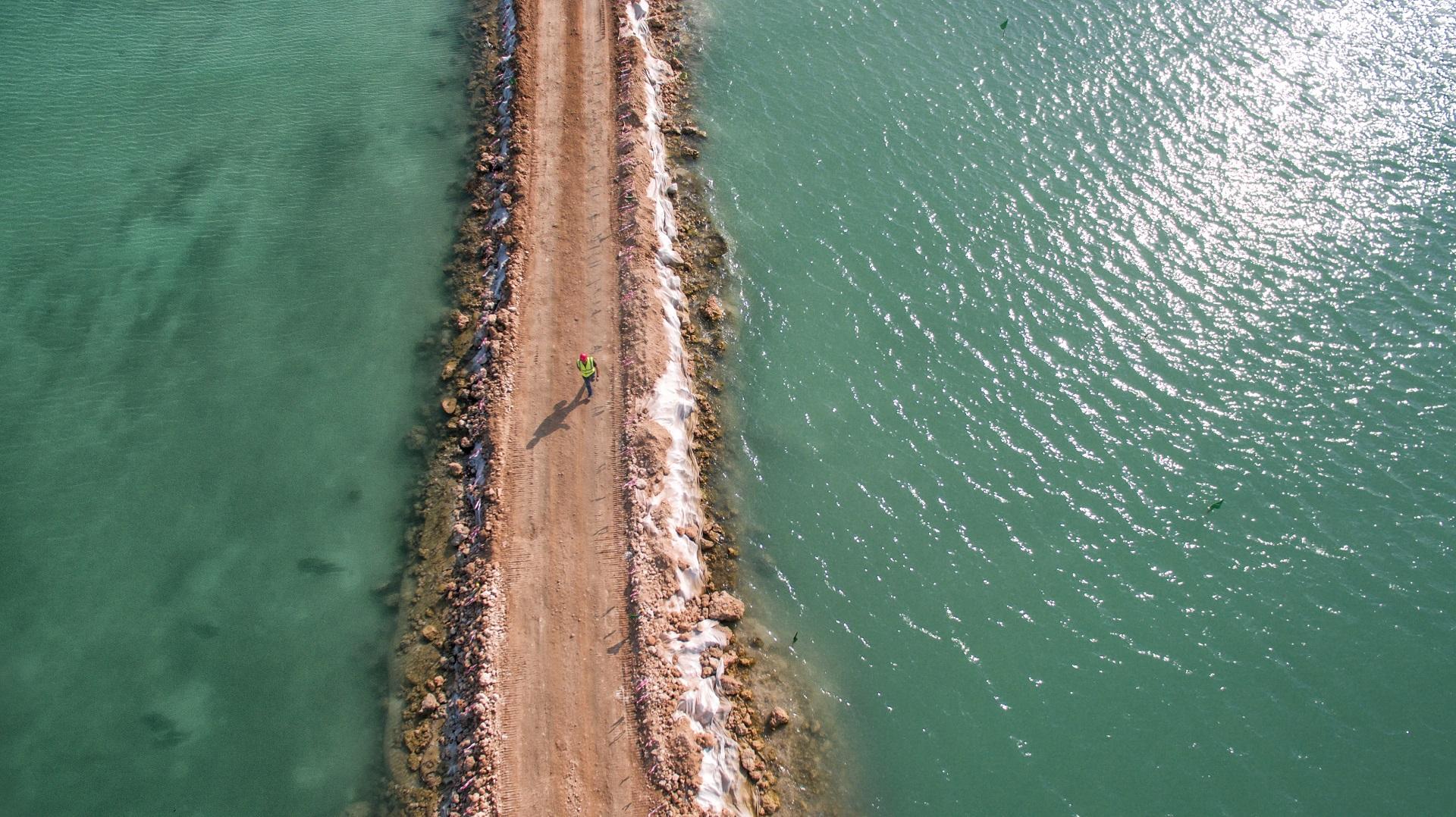Building tomorrow
Zero impact desalinators: the first plant in Arabia

New perspectives on environmental sustainability for desalinators: first carbon-neutral plant to be built in Arabia
29 September 2022 - The imaginative Neom, the smart city of the future built from scratch in the Saudi desert, will quench its thirst with desalinated seawater and do so with zero impact, as announced this summer, opening up entirely new prospects for the spreading of desalinators globally.
Indeed, the challenge has long been to make desalination less and less expensive and increasingly green. First and foremost, sustainability comes through the use of renewable energy, since these are energy-intensive facilities. Desalination carried out with renewable energy is one of the main challenges for the future of water-scarce countries, and the arid areas, where desalination plants are most widely used, are also those with the most solar irradiation and therefore most suitable for photovoltaics. But technology is always offering new possibilities, as the case of the Canary Islands shows, where local authorities have signed an agreement with Norway's Ocean Oasis to build a desalinator that will be placed directly in the sea to harness the energy produced by the waves.
New ideas for brine disposal: from Mit in Boston to Zero Brine projects in Europe
But the issue that requires the most attention, from an environmental point of view, is the disposal of production residues, the so-called brine, which contains a high concentration of salts. Today, about 100 billion litres of water are produced daily in the world from desalination, resulting in a similar mass in terms of salt residues. Their disposal at sea involves a significant cost in terms of energy and a great deal of attention to the impact they can cause on the environment because brine is non-polluting, but if it is poured into the sea in large quantities and in the absence of strong currents that can disperse it quickly, it can cause an increase in the salinity of the water, which can have negative effects on the marine ecosystem.
In the Netherlands, with funding from the European Union, Zero Brine pilot projects have redesigned the brine treatment scheme from a linear to a circular model to recover minerals, salts, and demineralized water. In America, engineers at MIT in Boston have also studied a better way to process desalination waste, converting it into useful chemicals, including those that can make the desalination process itself more efficient.
In Neom, the city of the future will have the first zero-impact plant
All this is becoming a reality in Neom, the city that aims to be a global example of innovation and environmental sustainability. A desalinator will be built here that will produce one million cubic metres of drinking water per day in 2025, but as early as next year it will be in operation with a flow rate of one-third of the total. For the first time in the world, energy supply will be provided by green hydrogen, that is, hydrogen itself produced from renewable energy. The plant will use innovative membrane separation technologies to produce concentrated water and brine flows. The brine generated by the plant will be processed to feed industries using raw materials of high-purity industrial salt, bromine, boron, potassium, gypsum, magnesium and rare metals. Brine then becomes a product and no longer a waste, reducing the environmental impact to essentially zero and redefining the entire business model for desalinators of the future.
Italy also working on increasingly environmentally sustainable solutions
In Italy, too, research centres such as the Clean Water Center of the Polytechnic University of Turin or companies specializing in water treatment such as (Webuild Group) are working to improve the cost and environmental impact performance of desalination plants, plants that precisely, according to Webuild - recently returned number one in the world in the water segment, at the top of the ranking of the largest international contractors compiled by ENR, the most authoritative U.S. magazine in the sector - could ensure Italy a structural solution to the water crises that climate change will exacerbate in the coming years. The Group also presented a project, called "", which with the construction of 15 to 16 plants throughout Italy could permanently solve the problem of future water crises.
"Water is Life"
Webuild's proposal that would contribute to a definitive solution to the severe water scarcity afflicting Italy

Lavoriamo ogni giorno alla gestione sostenibile dell'acqua in tutta la filiera idrica attraverso infrastrutture, progetti e opere capaci di incrementare la disponibilità idrica anche dove le risorse naturali risultano insufficienti o inquinate.


Water is life
Riusciamo a guardare oltre l’acqua, immaginando tutte le forme che può assumere: energia pulita e rinnovabile, salute e sicurezza delle comunità, tutela della biodiversità: Water is life.
Lavoriamo ogni giorno alla gestione sostenibile dell'acqua in tutta la filiera idrica attraverso infrastrutture, progetti e opere capaci di incrementare la disponibilità idrica anche dove le risorse naturali risultano insufficienti o inquinate.